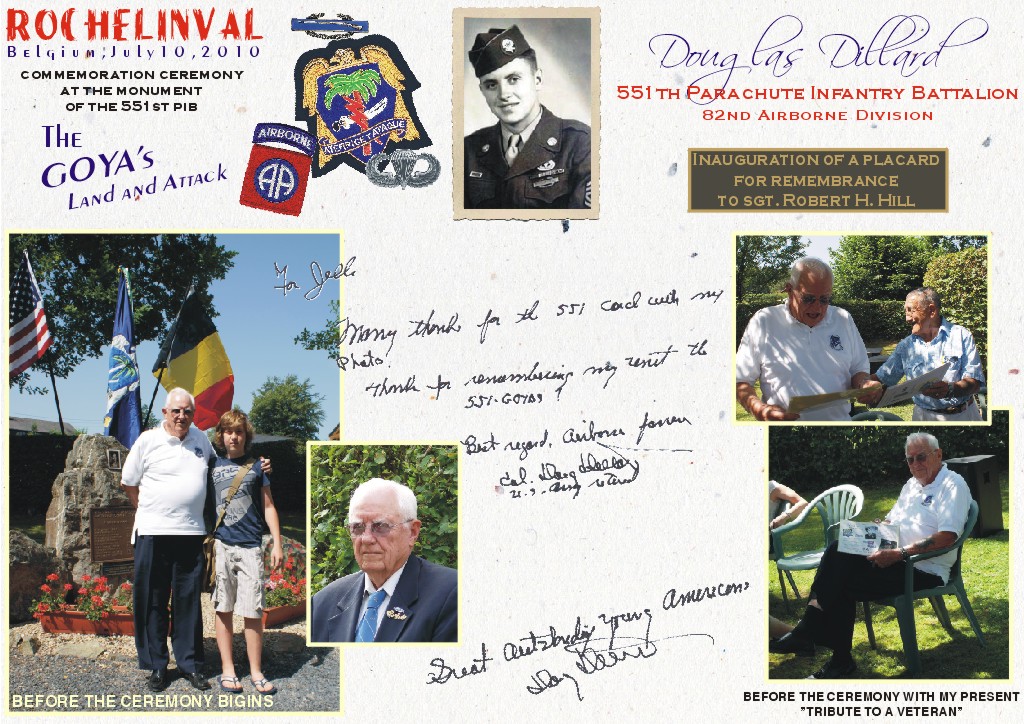- Born: 14 Sep 1925
- Enlistment date: 03 Jul 1942
- Deployments: Panama Canal Zone 1942-43, Europe 1944
- Units: 551st Parachute Infantry Battalion, 508th Parachute Infantry Regiment - 82nd Airborne Division,
504th Parachute Infantry Regiment, 505th Parachute Infantry Regiment.
- Rank: Ranks held from Private to Colonel
- Specializations: 60mm Mortar Man, CW Operator, Communications Sergeant.
- Qualifications: Parachute Badge, Expert Marksman, Combat Infantryman Badge
- Decorations: BSM, Presidential Unit Citation, Bronze Star, Army Good Conduct Medal, EAME Campaign Medal,
WWII Victory Medal, French Croix de Guerre,
- Discharge Date: 30 Sep 1977
Doug joined the Army when he was just 16 years. His mother had signed the papers allowing him to enlist on July 3, 1942. "She was kind of upset about it, but I'd really been bugging her about letting me join." And since her husband -- his stepfather -- was an Army sergeant deployed to North Africa, it wasn't as if she could say she didn't know what he was getting into.
Then-Pvt. Dillard was assigned to the 551st Parachute Infantry Battalion, becoming one of those soldiers who is able to suppress the understandable reluctance humans have to throw themselves out of perfectly good airplanes.
On Aug. 15, 1944, when he was just 17, he stepped into the air and jumped over southern France. His unit fought in the Battle of the Bulge in conditions so brutal and quarters so tight that at one point, Col. Dillard said, "Lieutenant Durkee, who's buried over there, he yelled to fix bayonets and let's go."
That was Jan. 4, 1945, in Dairomont, Belgium, one of the last bayonet charges of the war.
Col. Dillard didn't have a bayonet -- he had a Thompson submachine gun that was frozen and useless -- so he pulled out his .45-caliber sidearm and used it instead.
"I can remember that as if it happened yesterday, the Germans lying there with their breath coming out like it was steam."
Rising through the ranks, he ended WWII as a 1/Sgt. He went on to have a distinguished military career while serving in both the Infantry and Military Intelligence Branches. Combat service also included Korea where Doug served with the North Korean partisans and Agents behind the lines. He saw service in Vietnam included two tours one with the MACV Detachment in the Mekong Delta the other as Commander of the Army Intelligence unit for SE Asia.
Before leaving the 82nd to go to Korea in 1951, Doug qualified as a Master parachutist and Pathfinder. As an Intelligence Officer he studied the Czech and German languages in preparation for duty in Europe.
''Fix Bayonets'' Recollection of Douglas C. Dillard
